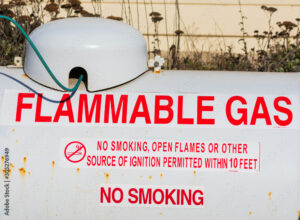When it comes to sustainable living, finding efficient and eco-friendly ways to heat your home is essential. Propane space heaters have gained popularity among urban millennials and eco-conscious consumers for their portability, efficiency, and versatility. However, are they the right fit for your needs? This guide explores the pros and cons of propane space heaters to help you make an informed decision while staying committed to urban sustainability and heating safety.
What Are Propane Space Heaters?
Propane space heaters are compact heating devices that run on liquid propane, a byproduct of natural gas processing and crude oil refining. These heaters are popular in both residential and outdoor settings, offering a convenient option for those looking to avoid electric space heaters or traditional central heating systems.
But are propane heaters really eco-friendly or energy-efficient appliances for sustainable homes? Let’s break it down.
The Pros of Propane Space Heaters
1. Energy Efficiency
Propane space heaters are designed for quick and targeted heating, making them more efficient than an electric space heater for warming a specific area. With their instant heat output, propane heaters minimize energy waste, which appeals to eco-conscious consumers striving to reduce their carbon footprint.
2. Portability
One of the standout benefits of propane space heaters is their portability. Since they don’t rely on electricity, these heaters are perfect for heating spaces like garages, patios, camping areas, or rooms without electrical outlets. Their cordless design means they’re highly versatile.
3. Cost-Effective Heating
For short-term or localized heating needs, propane heaters are often more affordable to operate than electric heaters, particularly in areas where electricity rates are high. Combining propane’s affordability with the heater’s efficiency makes these devices an economical option for sustainable shoppers.
4. Backup During Power Outages
Unlike electric space heaters, propane models continue to operate during power outages, ensuring you stay warm even during winter storms—a major plus for both urban sustainability enthusiasts and suburban dwellers alike.
5. Environmentally Friendly Fuel
Propane burns cleaner than other fossil fuels like wood or coal, producing fewer carbon emissions. Though not as green as solar or wind energy, its lower greenhouse gas emissions make it a “greener” option for heating.
The Cons of Propane Space Heaters
1. Safety Concerns
While modern propane heaters come equipped with safety features, improper use can lead to risks such as gas leaks, fire hazards, or carbon monoxide poisoning. Always ensure your heater is equipped with an oxygen depletion sensor (ODS) and use it in a well-ventilated area to maintain heating safety.
2. Limited Eco-Friendliness Compared to Electric
Propane, although cleaner than traditional fossil fuels, is still not entirely renewable. Electric space heaters that run on renewable energy sources like solar power may be a better option for those committed to eco-friendly living.
3. Requires Proper Maintenance
Regular maintenance is crucial to keep propane heaters operating safely and efficiently. Components like fuel tanks, valves, and burners need periodic checks—a task some sustainable shoppers may find inconvenient or challenging.
4. Fuel Storage and Availability
Propane heaters require propane tanks, which take up storage space and need frequent refilling during winter. Accessibility to propane fuel can also vary depending on your location, which may detract from their convenience.
5. Initial Cost
Higher-quality propane space heaters with built-in safety features can be expensive upfront. While the operating costs may be lower over time, the initial expense can be a barrier for budget-conscious users.
Propane vs. Electric Space Heaters for Urban Sustainability
Both propane and electric space heaters have their pros and cons, but the right choice depends on your lifestyle and sustainability goals. If you live in an area with renewable energy infrastructure, an electric space heater powered by green energy may be the more eco-friendly option. Alternatively, propane heaters make sense in off-grid situations where electricity is not an option.
Tips for Sustainable Heating Safety
- Ventilate Properly
Always use propane space heaters in a well-ventilated area to prevent carbon monoxide buildup.
- Invest in Safety Features
Ensure your heater has an ODS and an automatic shut-off feature to enhance safety.
- Limit Usage Hours
Use the heater only when necessary and consider layering up to conserve fuel and minimize environmental impact.
- Dispose of Tanks Responsibly
Recycle or dispose of propane tanks according to local guidelines to maintain eco-friendly practices.
Final Thoughts
Propane space heaters can be a great addition to your sustainable living toolkit, offering efficient and portable heating solutions that align with urban sustainability values. However, safety and eco-friendliness require mindful use. By weighing the pros and cons, you can decide if propane heaters are the right fit for your needs—or if electric space heaters with renewable energy are a better choice.
Still unsure about your best heating options? Explore our eco-friendly tips and resources to stay warm while protecting the planet!
For Tons of Great Free Information please hit “Like & Subscribe”
Websiteconstructionconsumeradvocacyinstitute.com
Podcastanchor.fm/galloway
www.youtube.com/@ConstructionConsumerAdvocacy





